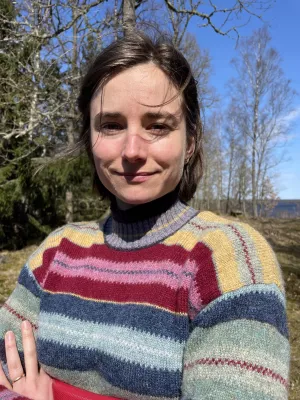
Annemarie Eckes-Shephard
Researcher

Improving together : Better science writing through peer learning
Author
Summary, in English
Science, in our case the climate and geosciences, is increasingly interdisciplinary. Scientists must therefore communicate across disciplinary boundaries. For this communication to be successful, scientists must write clearly and concisely, yet the historically poor standard of scientific writing does not seem to be improving. Scientific writing must improve, and the key to long-term improvement lies with the early-career scientist (ECS). Many interventions exist for an ECS to improve their writing, like style guides and courses. However, momentum is often difficult to maintain after these interventions are completed. Continuity is key to improving writing. This paper introduces the ClimateSnack project, which aims to motivate ECSs to develop and continue to improve their writing and communication skills. The project adopts a peer-learning framework where ECSs voluntarily form writing groups at different institutes around the world. The group members learn, discuss, and improve their writing skills together. Several ClimateSnack writing groups have formed. This paper examines why some of the groups have flourished and others have dissolved. We identify the challenges involved in making a writing group successful and effective, notably the leadership of self-organized groups, and both individual and institutional time management. Within some of the groups, peer learning clearly offers a powerful tool to improve writing as well as bringing other benefits, including improved general communication skills and increased confidence.
Publishing year
2016-07-21
Language
English
Pages
2965-2973
Publication/Series
Hydrology and Earth System Sciences
Volume
20
Issue
7
Document type
Journal article
Publisher
European Geophysical Society
Topic
- Environmental Sciences
Status
Published
ISBN/ISSN/Other
- ISSN: 1027-5606

